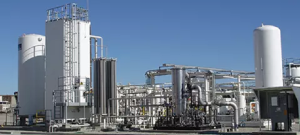An NGO, the Public and Private Development Centre (PPDC), says that the Compressed Natural Gas (CNG), as an alternative to petrol by the Federal Government, is a welcome development considering the price difference.

Mr Shittu Jubril, the Chief Executive Officer, PPDC, stated this in an interview in Abuja.
Compressed Natural Gas is the cleanest burning fuel operating today and brings about less vehicle maintenance and longer engine life.
Jubril said why CNG could be a good substitute was because the cost might be N100 for the equivalent of a liter of fuel as at the time fuel was costing about N250.
“If we are talking about inflation, we are talking about a cost of not more than N170 compared to N500 now depending on where you are in Nigeria,” he said.
Jubril commended the Federal Government for the efforts so far and called for faster implementation of the alternatives to cushion the effect of subsidy removal on the citizens.
He said that the government should make credit facilities with long term repayment rates available for the citizens to access, provide alternative transport mechanisms, health care and address the cost point.
“We are talking about 130 million Nigerians living below the poverty line globally; this is something we should ensure we are considering while making these decisions.
“We are talking about increasing the minimum wage but we are not also looking at what is the average cost point for the average Nigerian.
“The average Nigerian is facing inflation of almost 24 per cent; he is facing a consumer pricing index of almost 25 per cent, and food prices are set to increase,” Jubril said.
He added that the average Nigerian also spent N7 out of every N10 or pocket expense for health care.
“When you consider other countries, for instance Egypt; Egypt was only able to convert 50,000 to 75,000 of their vehicles per year to be using compressed natural gas, Nigeria has 1.5 million vehicles,” Jubril said.
He explained that Nigeria had already set up the infrastructure through the Nigerian Independent Petroleum Company and some gas stations that were already producing gas.
“But for conversion, there is a question of how would the average Nigerian be able to afford it?
“However, it is good to see that there has been some progress made.
“I could see that there has been a committee set up to look at how to ensure that the fuel subsidy that is being removed is used for some of the critical areas of the economy,” Jubril said.
Jubril stated that there was a need to cut down on the very expensive cost of governance.
“We need to ensure that the commitments are evenly balanced between the citizens and the Federal Government.
“It is a good direction that we are headed in because we all agreed that the subsidy needs to go but also what of other subsidies, the import subsidy also needs to go.
“We need to ensure that access to credit facilities for the average Nigerian is made available so that we can engage in businesses and reset the economy so as to grow as a country,” said Jubril.
By Jacinta Nwachukwu
